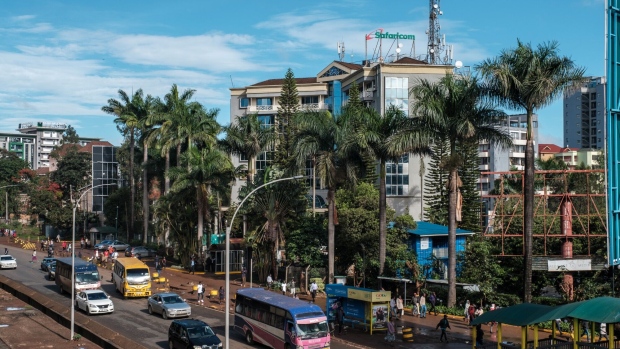Jan 16, 2024
Kenya Turns to Sustainability Swap Before $2 Billion Debt Deadline
, Bloomberg News

(Bloomberg) -- Kenya is looking into a kind of debt swap that would bolster its finances as it faces a crucial repayment deadline, while channeling funds into basic social services, according to people familiar with the early-stage deliberations.
The nation, which has $2 billion in existing debt maturing in June, is currently working with banks and a small group of potential investors to explore the structure of such a swap, said the people who asked not to be named discussing non-public information.
The deal, if it goes ahead, would represent a variation on so-called debt-for-nature swaps, whereby a borrower refinances existing debt at more favorable rates and uses the savings on environmental conservation. In this case, the goal would be to direct savings toward social projects such as healthcare, the people said.
Kenya is talking to a multilateral development bank (MDB) regarding guarantees to help attract private investors, they said. It’s not clear that any of the maturities coming due in June would be tendered in connection with such a swap, they also said.
Kenya’s Treasury didn’t respond to requests for comment. The region’s main MDB, the African Development Bank Group, said in a written comment that it is “committed to supporting its regional member countries” as it “works to deploy its most relevant and beneficial financial instruments including debt swaps” to address a country’s needs.
“However, at this moment, the Bank is not in a position to comment on Kenya’s specific funding plans,” the AfDB also said.
Similar debt swaps have already been executed by Belize, Ecuador and Gabon, in which they refinanced existing debt in exchange for commitments to protect their marine environment. Barbados is moving toward its second such deal, with proceeds earmarked for the upgrade of a sewage treatment plant in order to cut emissions and improve water quality.
Kenya’s maturing 6.875% securities are quoted at a yield of about 14.7%, according to Bloomberg indicative bid prices. The country’s high debt-financing costs are adding to the financial burden of a government already grappling with the fallout of a more-than 20% slump in the Kenyan shilling over the past year.
If the Kenyan government moves ahead with a debt swap, it would still need to decide on which social projects to support and which securities to refinance, the people familiar with the matter said.
Kenya’s President William Ruto has previously expressed interest in pursuing debt-for-nature swaps and selling green bonds. To address climate change, the cabinet on Monday approved Kenya’s Sovereign Green Bond Framework, which seeks to secure alternative funding options for green and resilient investments amid rising climate change costs.
Last year, Ecuador completed the largest ever debt-for-nature deal of its kind, a transaction that’s slated to generate more than $1 billion worth of savings for the government while helping to protect habitats of the Galapagos Islands. Analysts at Barclays Plc estimate that the market for such instruments may eventually reach more than $800 billion.
--With assistance from David Herbling.
(Adds comment from African Development Bank in fifth paragraph.)
©2024 Bloomberg L.P.






